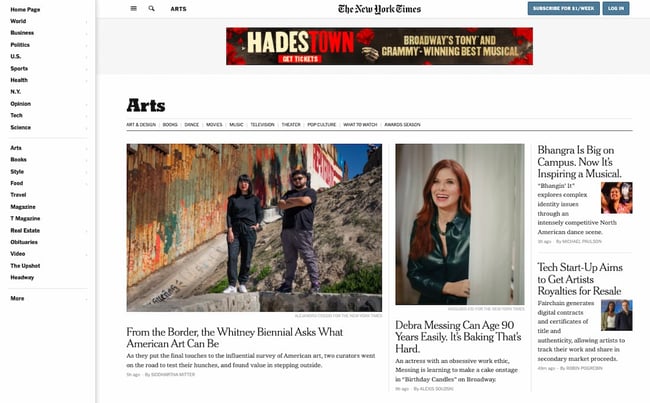How News Websites can Save You Time, Stress, and Money.
Table of ContentsThe Main Principles Of News Websites The 45-Second Trick For News WebsitesSome Known Facts About News Websites.The 5-Minute Rule for News WebsitesWhat Does News Websites Do?
It was down in the UK and Brazil however up a few other countries, such as Greece, Bulgaria, and Poland (News Websites). This year, for the first time, we inquired about the different methods that individuals prevent the news and found that around half of avoiders (53%) were trying to do so in a broad-brush or routine way as an example, by switching off the radio when the news came on, or by scrolling past the information in social mediaYou stated that you try to actively stay clear of information.

I'm probably selecting to find out more light-hearted stories than I utilized to right now. M, 51, UK Switching my back on news is the only method I feel I can deal sometimes. I have to consciously make the effort to avert for the sake of my very own psychological health.
3 Simple Techniques For News Websites
Discerning evasion of Ukraine information was greatest in many of the nations closest to the dispute, strengthening searchings for from our added study in 2015, not long after the war had actually started. Our data may not suggest a lack of interest in Ukraine from close-by nations yet rather a wish to manage time or secure psychological health and wellness from the very actual scaries of war.
Contrasting Finland with a politically polarised country such as the USA (see next chart) that is much less impacted by the war, we discover an extremely different pattern of subject avoidance. In the USA, we discover that consumers are extra likely to avoid topics such as national politics and social justice, where debates over concerns such as sex, sexuality, and race have come to be very politicised.
American national politics are pretty toxic nowadays. I find in some cases that I have to separate from stories that simply make me angry. F, 61, USA For some individuals, bitter and dissentious political discussions are a reason to shut off news entirely, however, for some political partisans, avoidance is often regarding obstructing out perspectives you do not want to listen to.

Some Known Details About News Websites
Some are wanting to make news more available for hard-to-reach teams, expanding the news agenda, appointing more motivating or favorable information, or accepting constructive or solutions journalism that offer people a sense of hope or individual company. In our study this year, we asked respondents concerning their passion in these different methods.
This explains why read what he said tales like Ukraine or nationwide politics do well with news regulars yet can at the very same time turn less interested users away (News Websites). Selective avoiders are less curious about all sorts of information than non-avoiders however in loved one terms they do seem to be much more interested in favorable or solutions-based news

4 Easy Facts About News Websites Explained
2023). This might hold true in the minute, yet with time it seems to be leaving lots of people empty and much less pleased, which may be threatening our link with and rely on the information. Across markets, total count on news (40%) and rely on the sources people use themselves (46%) are down by a further 2 percent factors this year.
With the rear-view mirror, the COVID-19 trust fund bump is clearly noticeable in the adhering to chart, though the instructions of travel later on has actually been mixed. In many cases (e.g. Finland), the trust boost has actually been maintained, while in others the upturn looks even more like a spot in a tale of continued long-lasting decrease.
A few of the highest possible reported levels of media objection are located in countries with greatest degrees of distrust, such as Greece, the Philippines, the United States, France, and the UK. The most affordable degrees of media objection are usually in those with greater levels of depend on, such as Finland, Norway, Denmark, and Japan.
The 8-Minute Rule for News Websites
This year we asked respondents concerning their choices for message, audio and video when consuming information online. On average, we find that the bulk still like to check out the news (57%), rather than watch (30%) or listen to it (13%), but more youthful people (under-35s) are much more likely to listen (17%) than older teams.
Behind the averages we discover considerable and unexpected nation differences. In markets with a solid reading practice, such as Finland and the United Kingdom, around 8 in ten still favor to check out on-line information, but Visit Your URL in India and Thailand, around 4 in 10 (40%) claim they like to watch information online, and in the Philippines that proportion mores than fifty percent (52%).
Comments on “Indicators on News Websites You Should Know”